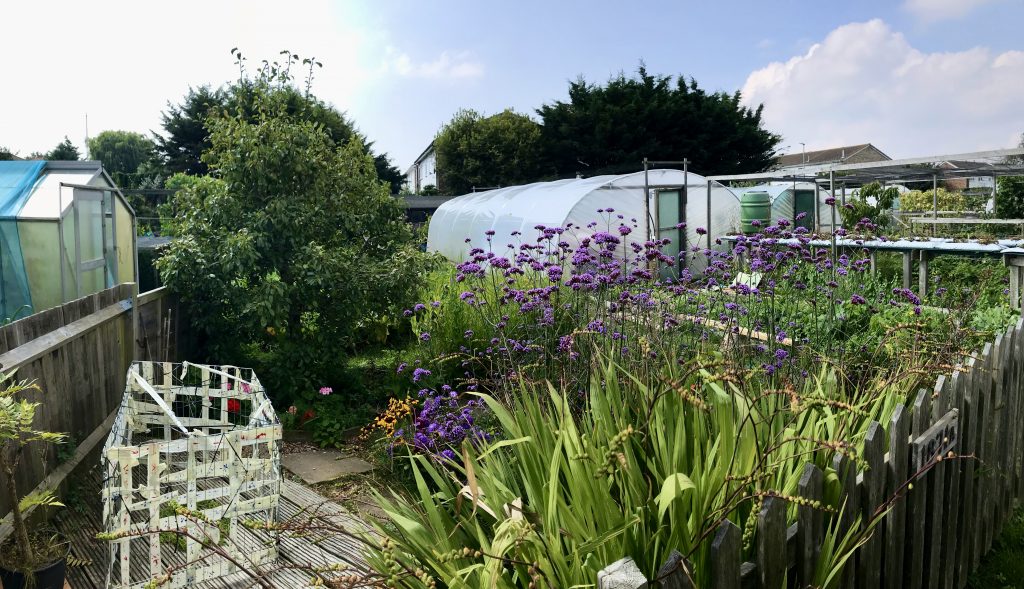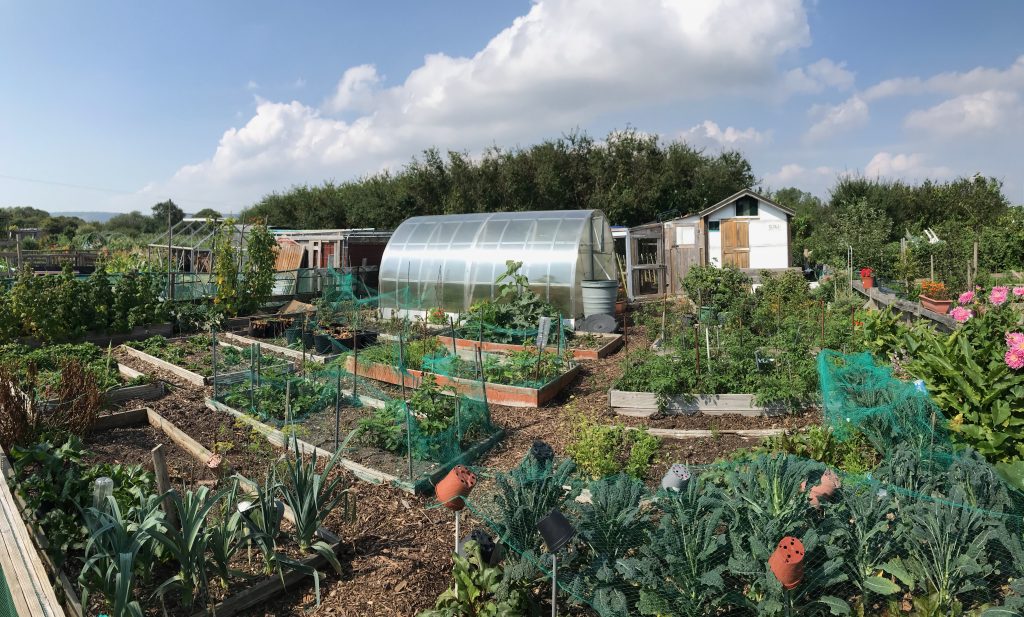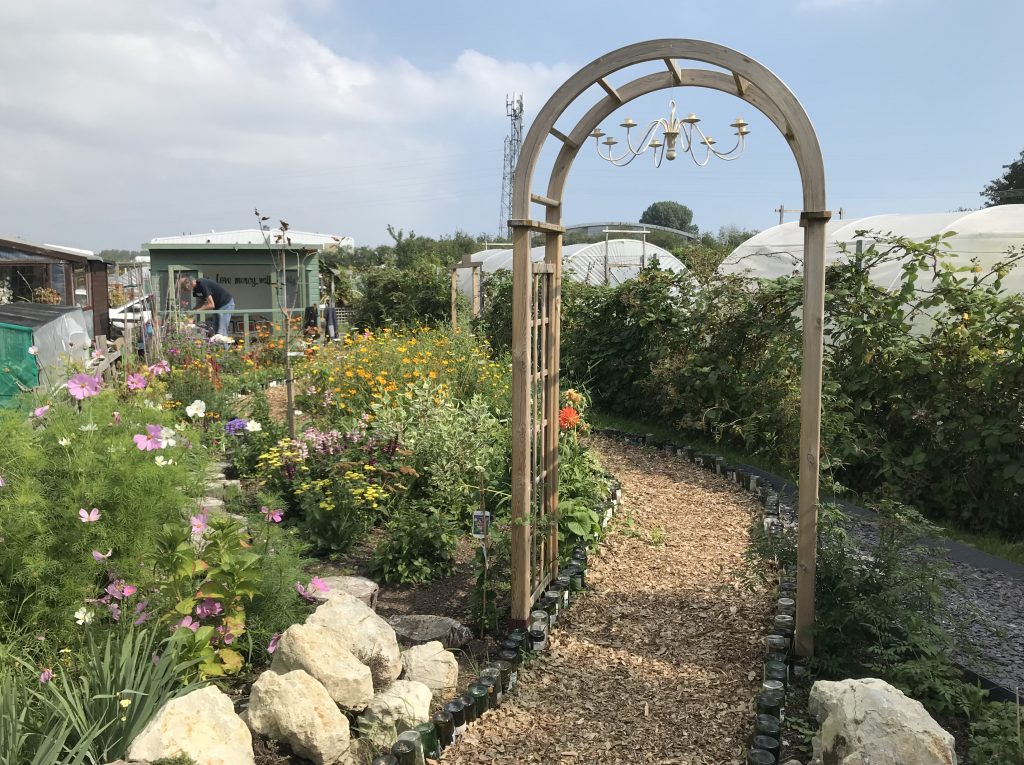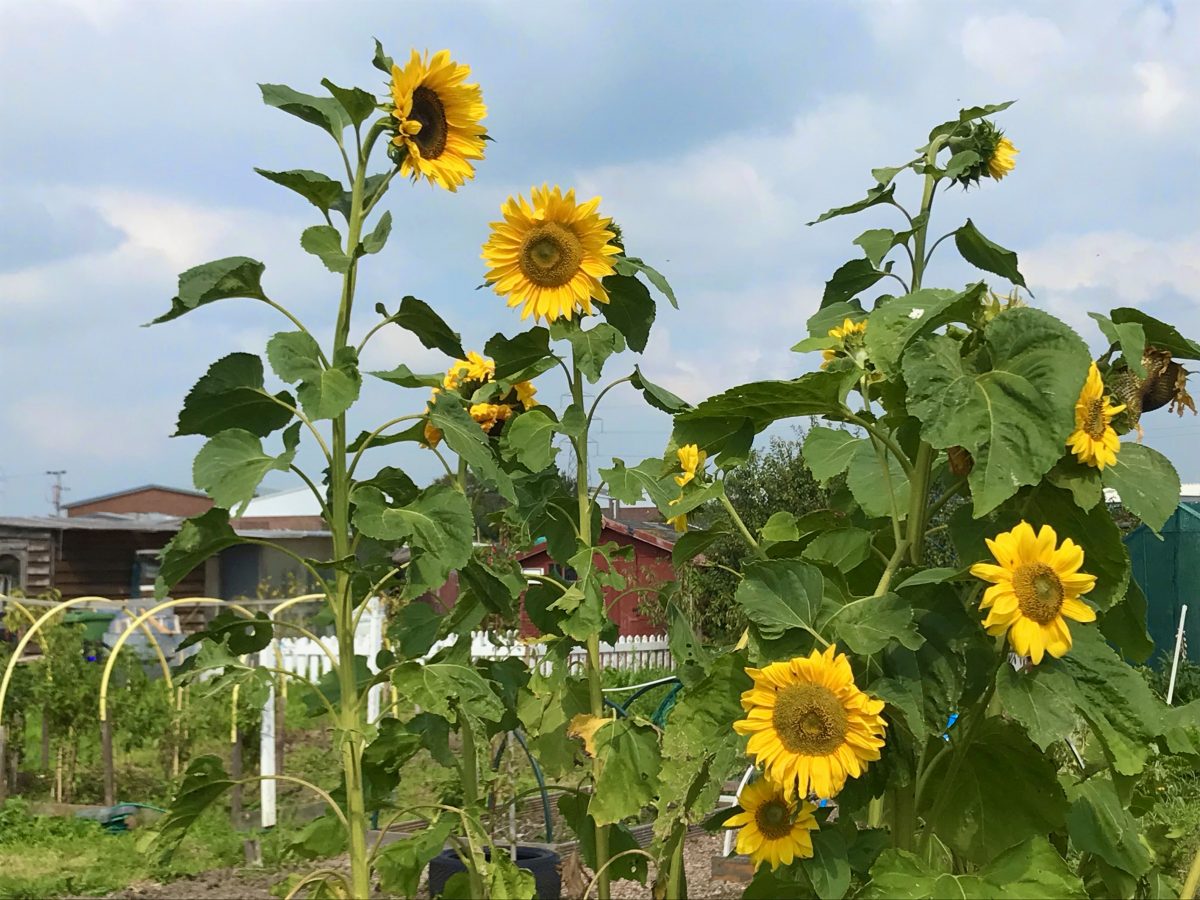To most holidaymakers, Eastbourne is best known as the Sunshine Coast, a seaside resort where grand Victorian hotels and stout Napoleonic forts keep watch over busy shingle beaches. That’s what the tourists come to see, of course. Eastbourne has a secret; the town is home to a thriving culture of allotments dating back to the 19th century.

How one woman changed Eastbourne forever
In the early 1800s, poverty and hunger were endemic in Sussex. Many parishes dismissed the struggling poor as witless. However, one landowner disagreed. Mary Ann Gilbert was born into a wealthy landowning family in 1776. Despite her comfortable upbringing, Gilbert was an outspoken social reformer who created projects to help the working classes grow their own food instead of depending on relief.
In 1830, Gilbert began redeveloping land on Beachy Head, hiring 27 paupers to remove waste and cultivate the soil. By 1835, Gilbert’s project had 235 allotment tenants, with over 400 allotment holders by 1844. Gilbert’s experiment reduced poverty in Sussex by almost half. It was an agricultural revolution that laid the groundwork for modern allotment management as we know it today.
Why are Eastbourne’s allotments so popular?
Gilbert died in 1845, but her legacy is still felt all over the town. Eastbourne Allotments & Garden Society, a non-profit organisation, has looked after the town’s fourteen allotment sites for many years. The society currently rent out over 1,200 plots, all of which are in high demand; presently, there are 500 people on a three-year waiting list for a plot.

Audio Interview with Louise Elms, allotments manager
Sue Dixon, Co-Chair for the Eastbourne Green Party, says the allotments are popular because the routine makes people feel more connected to others. She explains “allotments contribute hugely to wellbeing in terms of exercise and being outdoors of course, but also relaxation and a break from the pressures of the modern world. Everyone speaks of the sense of community.”
Almost everyone on the allotments mentions a profound sense of community. Louise Elms, the allotment manager, says “one of the best things about allotments we get people from all walks of life” The society estimates their diverse membership includes over twenty different nationalities. Many tenants belong to the town’s thriving Portuguese community, and several Syrian refugees also rent out plots.
Elms speaks warmly about how the allotments became a haven for many people during 2020’s gruelling series of COVID-19 lockdowns. “It was amazing for people”, she tells me over the phone. “So many people have told us that the allotments were a lifesaver, because it was the only place they could go and speak to people. It’s great for people, physically and mentally.”
Are Allotments a form of Self-Care?
One notable example of a genuine allotment community is Gather Community Garden, a diverse group of amateur gardeners and seasoned planters who meet weekly at the Churchdale road allotment to chat. Dave Roberts, who serves as Gather’s spokesperson, views their work as a ministry of wellbeing. Gather grew from a church, but their outlook is diverse and inclusive. “It was quite important for us to create the social space that wasn’t totally utilitarian,” Roberts says. “People can join the network, relax, and even take a few potatoes. If people are coming from real anxiety of loneliness, then small group interactions are often the best way to find their way back.”

For many, the thought of looking after an allotment feels daunting. It is a big responsibility, but the workload is manageable. According to Elms, the average renter can expect to spend between 5 and 12 hours a week working a basic plot, although their workload may depend on what produce they grow. “If you’re growing a lot of fruits,” Elms says, “you probably require less time than if you’re doing vegetables. And it’s not just vegetables you can have. You can have chickens and rabbits and bees.”
Allotments are a central pillar of Eastbourne’s rich history, as iconic as the Bandstand and Beachy Head. Working on an allotment is an opportunity to enrich not only nature, but one’s own wellbeing. If you want to know why that’s such a big deal, listen to Dave. “There’s a verse in Jeremiah”, he remarks, “where it says seek the prosperity as a place where you live. Plant gardens. Do good stuff.”

